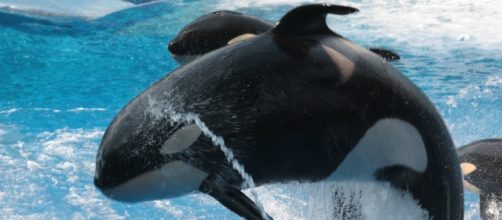Nearly six years ago, Tilikum, a 6-ton orca, killed animal trainer Dawn Brancheau at SeaWorld Orlando.
There was an immediate media frenzy and in 2013, a documentary named “Blackfish” highlighted the issues of Orcas in captivity. Following the release of the film at the Sundance Film Festival, Dawn’s family distanced themselves from the movie, saying they were “not affiliated with this movie in any way.”
The Movie
Gabriela Cowperthwaite directed the documentary, which focused on Tilikum and set out to bring the plight of orcas in captivity to the public.
It received excellent reviews from Mediacritic, Rotten Tomatoes, and Deseret News. The film grossed over 2 million dollars during two weeks at the North American box office.
SeaWorld employees and management hit back at the movie saying in a statement, “Blackfish ... is inaccurate and misleading and, regrettably, exploits a tragedy.” It angered SeaWorld management that the film did not highlight the fact that that a great part of SeaWorld is involved in the rehabilitation, rescue and release of wild orcas every year.
The Outcomes
Animal activists campaigned against the breeding of orcas in captivity, saying that the animals suffered psychological damage and the capture of them is very traumatic.
Federal and State bodies have worked towards prohibiting the capture of wild orcas. They also want to legislate against keeping them in captivity and propose to stop the export and import of the animals.
SeaWorld attendance dropped and SeaWorld stock prices dropped by 33%. To make matters worse, a Law Firm, Rosen, filed a class action lawsuit, which suggested that investors had been led to believe the drop off in visitors was the result of other factors not related to the documentary.
Southwest airlines severed their 25-year relationship with SeaWorld, citing “shifting priorities,” but most people attribute this to animal activist activity.
SeaWorld Australia, who is not affiliated to the US SeaWorld, went to great lengths to inform the public of this non-affiliation.
People for the Ethical Treatment of Animals (PETA), have been campaigning against SeaWorld because “they enslave animals and …is a business that is built on the suffering of intelligent, social animals.” Their campaign has been running under the banner SeaWorldofHurt.
SeaWorld has now announced that they will phase out their Shamu Killer Whale Show at San Diego. In a move to try to rebrand their image, the company will aim their new Orca program toward the more natural behavior of Orcas. The company is trying to refocus the public on the good work they do for marine conservation.
It is not certain that SeaWorld will change their Orca trick shows in all their facilities but according to the San Diego Union-Tribune, Dennis Speigel, president of International Theme Park Services, Inc.
did mention that in their industry, "You can't do it at one park and not do it at the other parks."
Will this satisfy animal activists?
PETA did not appear to be over-impressed with the announcement and it was obvious they feel that merely changing the format of a show is not good enough. The San Diego Union-Tribune, reports that PETA is still calling for an end to the captivity of Orcas.
Foundation Director of Animal Law, Jared Goodman said, "An end to SeaWorld's tawdry circus-style shows is inevitable.” Stopping shows does not go far enough for PETA. ”It’s captivity that denies these far-ranging orcas everything that is natural and important to them.”
The conspicuous absence of Tanzania from the Cotonou resolution to ban elephant trade
Rwanda proves that a green economy is within reach of all nations

